The HUNOR mission
The Hungarian national research astronaut program, Hungarian to Orbit (HUNOR), was established as an element of the space strategy (Hungary’s Space Strategy) adopted in 2021. On 30 July 2021, the Hungarian government published a government decision that included the adoption of the contract preparing the Hungarian research space mission, as well as the adoption of domestic industrial development measures and funding requirements related to the feasibility of the mission.
The potential of the space sector
Hungary does not have a lot of natural resources or raw materials, but it does have a high level of education and research capacities, which we have demonstrated several times over the past 50-60 years. Space research is a field that does not require a lot of physical resources, but it does require excellent researchers.
Hungarian experts in the field of space research have excelled in satellite design and in dosimetry, i.e. radiation measurement, and these fields may be further developed as a consequence of the HUNOR-program.
Hungary aims to be at the forefront of the space sector
A country that is at the forefront of space activities can gain a significant technological and economic advantage. The mission will not only put the actors of the Hungarian space sector, but also Hungary in a competitive position internationally in one of the most dynamically developing industries of the 21st century.
Education activities
The mission aims to stimulate interest in space science among Hungarians, especially the younger generations. As part of the mission, the Hungarian research astronaut on board the International Space Station will establish direct contact with the Hungarian student population, which will inspire the next generation of scientists and engineers, fostering a deeper interest in STEM fields such as science, technology, engineering and mathematics.
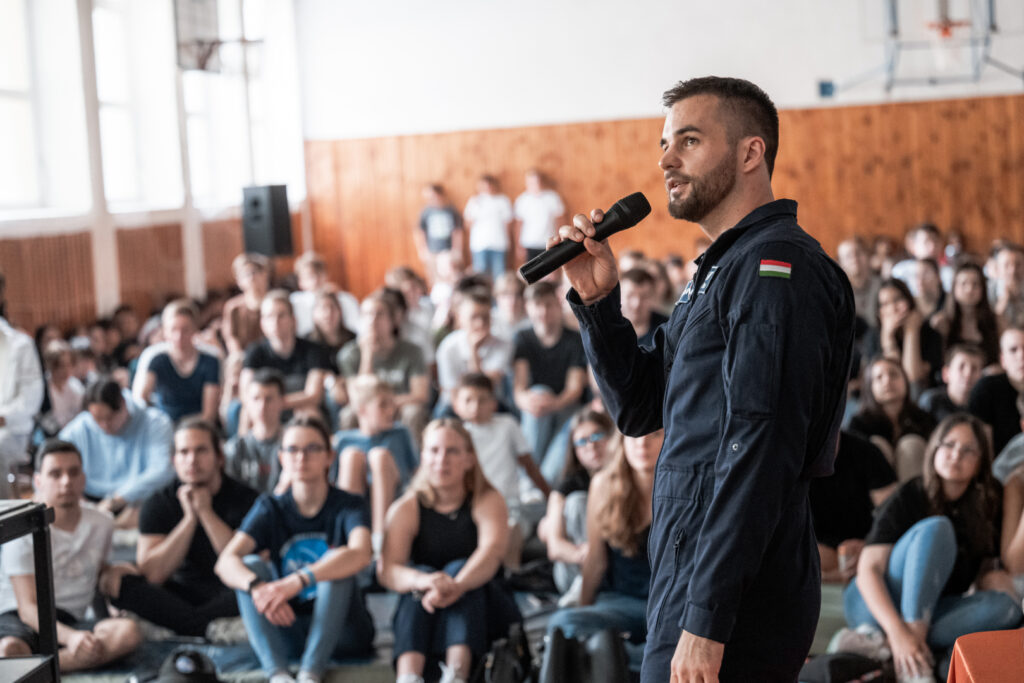
Reviving Hungarian space research traditions
Building on previous scientific achievements and significant milestones – from Zoltán Bay’s pioneering moon-radar experiment to Tódor Kármán’s space travel and the development of the Pille dosimeter – Hungary now faces new challenges: thanks to the space strategy adopted in 2021, we can send a person into space again after over 40 years.
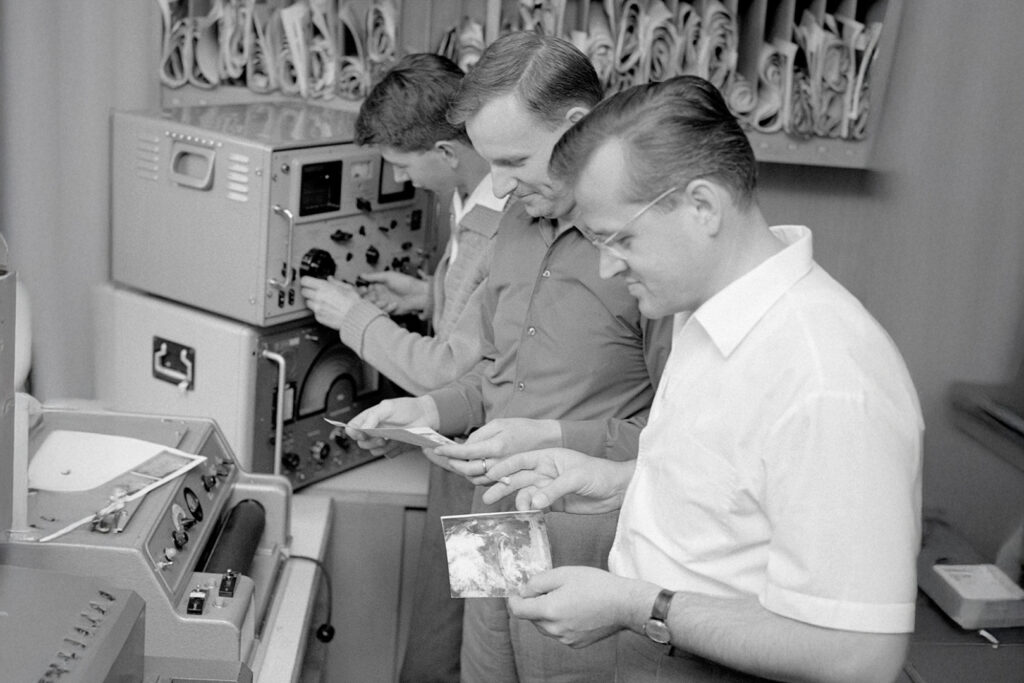
Global cooperation
Hungary is strengthening its position in the international arena by participating in the Ax-4 mission alongside the United States, Poland and India. This cooperation not only strengthens Hungary’s scientific edge, but also opens up new avenues for space industry partnerships and innovation.
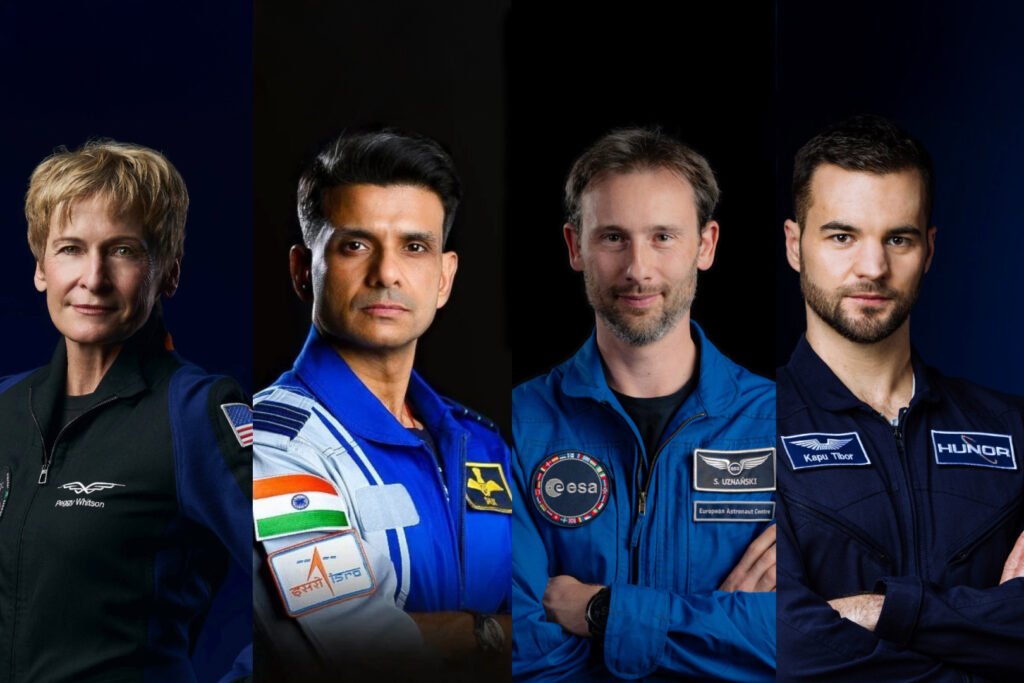
Promoting Hungarian science
The Hungarian research astronaut will carry out innovative experiments for Hungarian universities, research institutes and companies on board the ISS. These experiments will exploit the unique conditions of microgravity and radiation in space to advance our scientific knowledge and technological innovation.
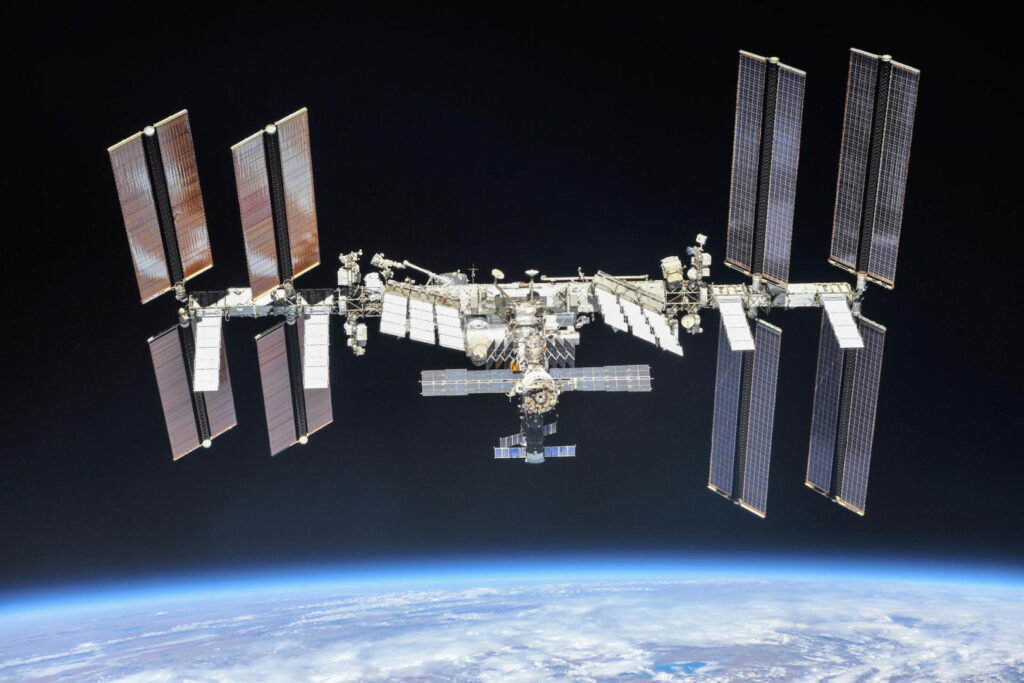
A decisive moment
The HUNOR-mission will strengthen Hungary’s status in the field of space activities, as it will place the country among the few nations that have the possibility to send a person into space. Thanks to the program, Hungary will also be able to acquire the knowledge necessary to train and prepare astronauts.
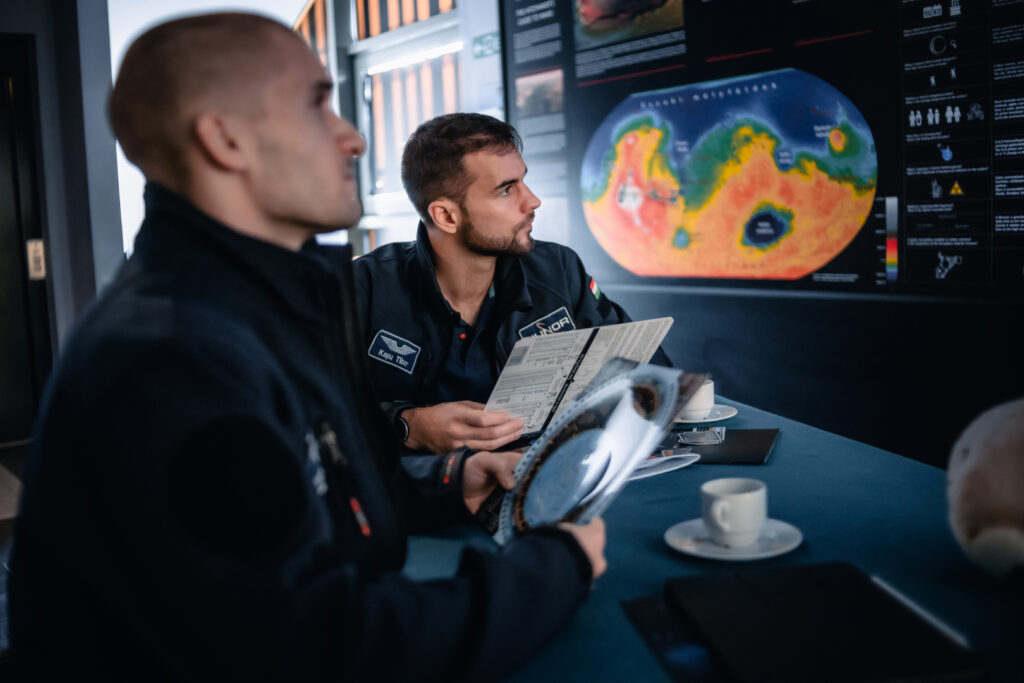
Building global partnerships
The HUNOR-program has been working with various international organizations from the very beginning of the training. HUNOR trainers have involved the European Space Agency, NASA and Axiom Space in the very first screenings. This ongoing international cooperation will accompany the program throughout.
The goal: space!
Hungary will send a person into space again after more than forty years. After a two-year selection and training process coordinated by Hungarian experts, and 8-10 months of mission-specific training provided by NASA and Axiom Space, the Hungarian research astronaut will serve on the International Space Station as a crew member of the Ax-4 mission. On board the ISS, the astronaut will carry out experiments for Hungarian universities, companies and research institutes.
This historic endeavor will place Hungary, and the Hungarian space sector, at the forefront of the international space industry, contribute to the creation of high added value career opportunities, stimulate the Hungarian scientific community and raise the interest of Hungarians in science.
Ax-4 mission
The mission, organized by space industry company Axiom Space, will see the Hungarian research astronaut travelling into space with an American, a Polish and an Indian partner to carry out research activities. This international cooperation will strengthen Hungary’s scientific edge while opening new avenues for space industry partnerships and innovation.
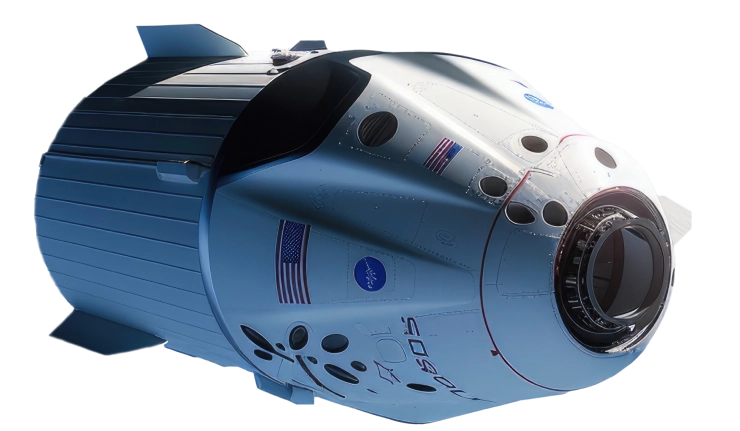
Axiom Space mission 4, which will include the Hungarian astronaut, is expected to be launched in spring 2025. The timing of human spaceflights to the space station is often affected by weather conditions, crew schedules and other circumstances, so the date may still change.
Our scientific and industrial development objective is to help Hungarian companies and research centers to realize their ideas through the program, either to find answers to the forthcoming challenges of growing space research worldwide, or to exploit the achievements of space technology for the benefit of our life on Earth and our economy. National and international experts have jointly developed the HUNOR experimental portfolio in this spirit, which includes more than 30 tasks for Hungarian astronaut on the International Space Station.
Scientific examinations, space industry development and educational activities can be brought on board the International Space Station with NASA’s permission. The Program’s experts and researchers from Hungarian partner institutions are working with Axiom, NASA and the European Space Agency in the rigorous approval process. The finalized HUNOR experiment portfolio will be published on our website.
The HUNOR-program aims to stimulate the domestic space sector and create outstanding career opportunities in Hungary. This growth will support the development of a robust space sector that will make Hungary more competitive internationally in the high-tech industry.
Hungary will strengthen its position in the international arena by participating in the Ax-4 mission alongside the United States, Poland and India. This cooperation not only enhances Hungary’s scientific standing, but also opens new avenues for space industry partnerships and innovation.
The research astronauts started their mission-specific training at Axiom Space in Houston in August 2024. That is where they met the other members of the Ax-4 mission crew, a Polish and an Indian colleague and their reserve, and their commander, astronaut Peggy Whitson. They have been working together and preparing for the mission ever since.